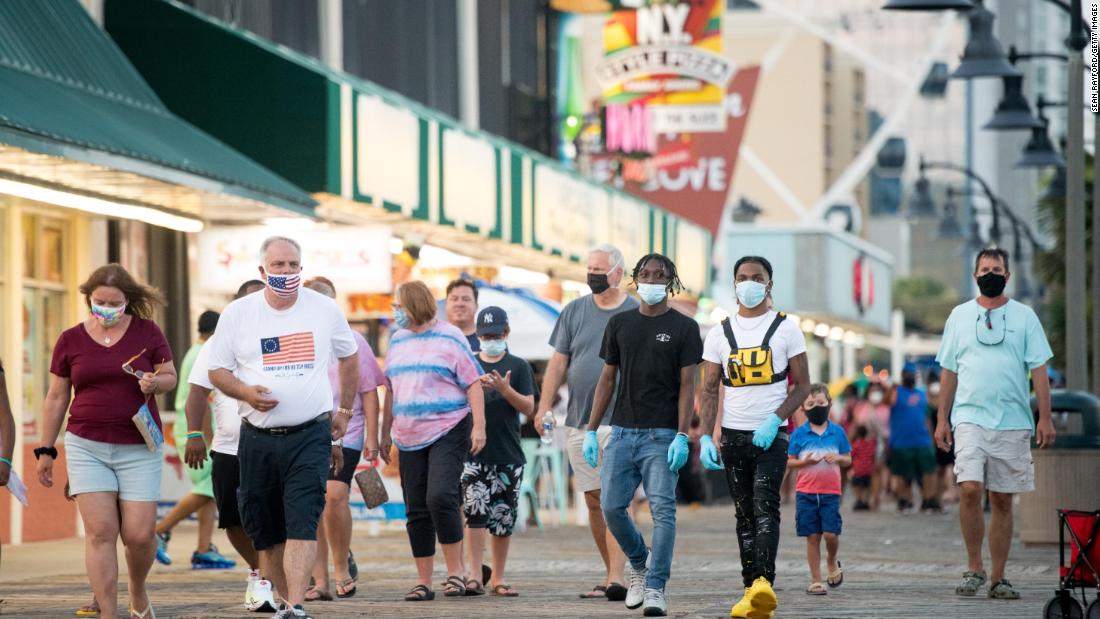[ad_1]
Wherever you stand politically, this should be a matter of great concern. Trust is crucial to our survival. In its own way, it’s as important as wearing masks.
Over more than a decade, I have had the chance to interview some of the world’s most remarkable survivors: a cyclist who fought off a mountain lion, workers who escaped the burning towers of 9/11, patients with metastatic cancer who have lived years longer than the doctors predicted. Their stories show the power of adaptability, purpose, ingenuity and grit.
They also show the power of faith: a belief, a trust, in something greater than themselves.
To survive this pandemic, trust in divinity won’t suffice in itself; we must trust in humanity. We need trust in institutions and the people who lead them, trust in experts to inform us, trust in one another.
This, as we’ve all experienced, is true at the most basic level. Do you trust your grocery store to take proper precautions? Your dentist? Your friends?
Even if our answer is “yes,” we know that won’t be enough. If citizens are going to follow public health guidelines, they’ll need to trust that government decisions are unbiased and fact-based. If we’re going to send our kids back to school, there’s a chain of people we’ll have to trust. And imagine the chain of labs and regulatory agencies and manufacturers and distributors and scientists involved in a vaccine. That will require a quantum leap of trust.
Yet today, the only leap we’re taking is backwards.
For some, the unwillingness to trust — even when presented with unequivocal facts — has become as unshakable as any religious faith. For others, trust has been eroded by mistruths, misdeeds and mistakes in high places. It should not surprise us that trust is lowest in communities that have been systematically abused by those who hold power.
Yet all 7.8 billion people on this planet have been thrown into the same lifeboat. The only way to get ashore is to trust one another. So how can we rebuild trust at a time when it’s so frayed and fractured?
First, paradoxically, we must choose where not to place our trust. Leaders who have proven themselves consistently dishonest have earned our distrust. At a certain point, it becomes dangerous to give someone the benefit of the doubt.
Third, we need institutions to hold themselves accountable — to the facts, and to the public. Politicians need to tell us the truth and not peddle false hopes. Business leaders, too, need to show through their actions that they’re putting the welfare of their workers and customers at least on par with their bottom line.
Media, where I have worked most of my career, bears a great burden, too: to regain trust, it must underreact to provocation or distraction and overreport on what matters most. And through reform, legal accountability and humility, law enforcement must begin the long and difficult process of proving that it can be trusted to protect, and not oppress or abuse, the communities it has sworn to serve.
In practice, tempered trust requires active participation. It means if you don’t feel comfortable about a backyard barbecue, ask your hosts how they’re going to keep everyone safe. If you’re nervous about returning to work, check with your employer about her specific plans for safeguarding the office. Tempered trust means taking calculated risks.
The cavalry isn’t coming to rescue us in the battle against Covid-19. We are the cavalry. And through our individual actions — to trust and be trustworthy — we strengthen the chain that binds us together. Doing so might be our greatest challenge — but in this fight for survival, it might also be our only hope.
[ad_2]
Source link



